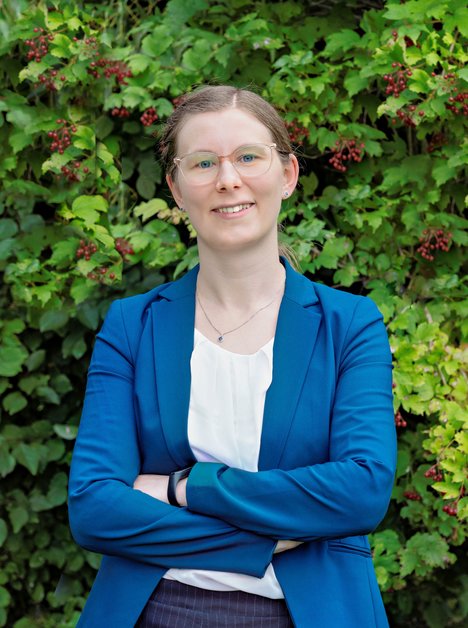The ‘Hello Industry! - Starting your career in the non-academic job market’ event series is entering its second round
On 13 November 2025, two Clausthal alumni, Dr Heike Busch (Head of Production Planning and Technical Logistics) and Dipl.-Math. Michael Hecht (Process Model Specialist for Green Steel Transformation) from AG der Dillinger Hüttenwerke, will present the company, the current challenges facing the steel industry and career opportunities at Dillinger Hütte.
In addition to graduates in metallurgy and materials science, skills in mathematics (production planning), computer science, economics, mechanical engineering and process engineering are particularly needed against the backdrop of digitalisation and the transformation of the entire production process towards CO2-neutral manufacturing.
The presentation, followed by a discussion, will begin on Thursday, 13 November at 5 p.m. in the cafeteria of the University Library (Leibnizstraße 2). All students, prospective graduates and researchers interested in the topic are cordially invited to attend!
The non-academic job market is a very exciting and dynamic environment with many rewarding career opportunities for academics, which is very different from the academic environment - how can a career entry into the non-academic job market be successful? What skills, knowledge and experience do companies value in addition to the specialist expertise acquired during studies and doctoral studies?
Three helpful aspects seem to play an important role in a successful transition [1]:
| Firstly: Networking or getting to know the future employer/people from the company in the run-up to or during the doctoral period. |
| Secondly, practical experience helps! Practical experience helps! On the one hand, this refers to experience gained during or after studies and/or doctoral studies in non-university employment, but also to activities in the context of academic work, including various administrative tasks. |
| ThirdlyFor some positions, working in a field that is thematically relevant to the institution helps. |
But what other (interdisciplinary) skills that you gain while writing a doctoral thesis can be helpful for a non-academic career?
We asked employers which skills, knowledge and experience they find particularly valuable in young professionals. The most important topics are summarized in the table [2]:
Requirements on the labor market
| COMPETENCES | KNOWLEDGE | EXPERIENCE | |
|---|---|---|---|
| PERSONALITY | MANAGEMENT | ||
| Application/ self-presentation | project management | Language skills: German | Practical experience Industrial internships |
| Basic knowledge of business administration | Language skills: English | International experience, e.g. EU-Erasmus+ | |
conflict management | Personnel and company management | Programming and software skills | Commitment, e.g. voluntary activities and committee work |
Self-reflection Willingness for personal development | Labor law and occupational safety | Entrepreneurial thinking |
The links in the table will take you to thematically relevant workshops currently on offer or to the TU Clausthal service pages. Please also check the current course catalog or StudIP to find out when the events of interest to you are taking place.
Doctoral graduates who have switched to a non-academic career feel that experience in project management - the ability to work in a structured manner, which every dissertation requires, a good grasp of new topics, the ability to familiarize oneself quickly with new topics and a good problem-solving ability- is important in their new job. Perseverance and frustration tolerance, which were demonstrated during the doctorate, are also frequently mentioned. Employers associate a doctorate with interdisciplinary skills and positive personality traits, such as analytical thinking and independent, structured work.
According to one recruitment agency, "PhD graduates are able to work independently and develop topics themselves. And assert themselves against resistance when things get difficult and a dry spell comes."
[1] UniWiND Special Perspectives after the doctorate Part 1 - Career paths outside academia: 13 portraits and Part 2 - Career paths outside academia: Employers in conversation.
[2] Handouts: Starting a career outside academia: A handout for graduates and young professionals
The following events have taken place:
-Continuing education on the topic of "How to be more employable" on 16/17.7.2024 with Dave Giltner






